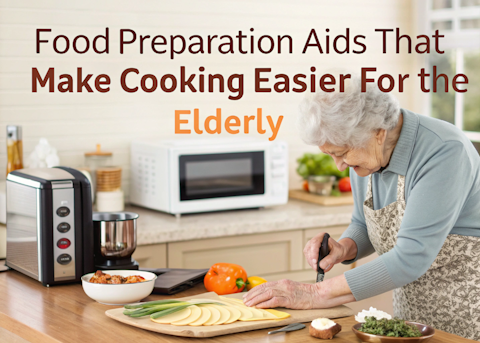Growing older does not have to mean giving up independence. Many people want to stay in their home for as long as possible, but safety can become a concern. The good news is that you do not need to spend thousands on major renovations. With a few budget-friendly modifications, you can make your home safer, easier to manage, and more comfortable for years to come.
Below are some practical and affordable ways to adapt your living space, with examples of products that you can find at Better Independent Living.
Improve bathroom safety
Bathrooms are one of the most common places where slips and falls occur. Simple changes can make a big difference.
- Add grab rails: Fitting a grab rail near the toilet, shower, or bath provides extra support when standing up or sitting down. Better Independent Living offers a wide range of grab rails in different sizes and finishes to match your bathroom.
- Use a bathing cushion: Getting in and out of the bath can become difficult with age. A bathing cushion, such as the mangar bathing cushion with airflo 12, allows you to lower yourself safely into the bath and rise again without strain.
- Shower and bath seats: A simple shower stool or bath board can reduce the risk of slipping by allowing you to sit while bathing.
Reduce trip hazards around the home
Falls are a major concern as we get older, but small adjustments can lower the risk.
- Clear clutter and secure rugs: Loose rugs and clutter in walkways are simple to trip over. Remove or secure them with non-slip pads.
- Walking aids: If balance is a worry, a lightweight walking aid such as a folding walking stick or walking frame provides steady support when moving around the house or garden.
Make everyday tasks easier
Simple tools can save strain on the joints and help with common tasks.
- Reachers and grabbers: A reacher is a low-cost aid that makes picking up items from the floor or reaching high shelves much easier.
- Button hooks and zip pulls: Getting dressed can be difficult with arthritis or reduced hand strength. A button hook or zip pull makes fastening clothing quicker and less frustrating.
- Adapted cutlery: For those who find eating with regular cutlery difficult, adapted cutlery with larger, easy-grip handles can make mealtimes more comfortable.
Lighting and visibility
Poor lighting increases the chance of falls. Good visibility is key to safe, independent living.
- Add brighter bulbs: Use LED bulbs with higher brightness in areas such as stairways, hallways, and bathrooms.
- Motion sensor lights: Consider motion sensor night lights for hallways and bedrooms to prevent trips in the dark.
Get in and out of chairs or beds more easily
Standing up from a low chair or bed can be difficult over time.
- Bed levers: A bed lever, such as the Liftwell bed lever, gives extra stability when getting in or out of bed.
- Chair cushions: A firm cushion raises the height of your favourite chair, making it easier to stand without strain.
Plan ahead for independence
Budget-friendly modifications are about more than just safety. They also support confidence and independence. The key is to look at the areas you use every day and ask, “Where do I struggle most?” Start with small changes and build from there.
Final thoughts
Adapting your home does not need to be expensive. From grab rails and non-slip mats to reachers and adapted cutlery, there are plenty of affordable solutions to make everyday life safer and more comfortable.
